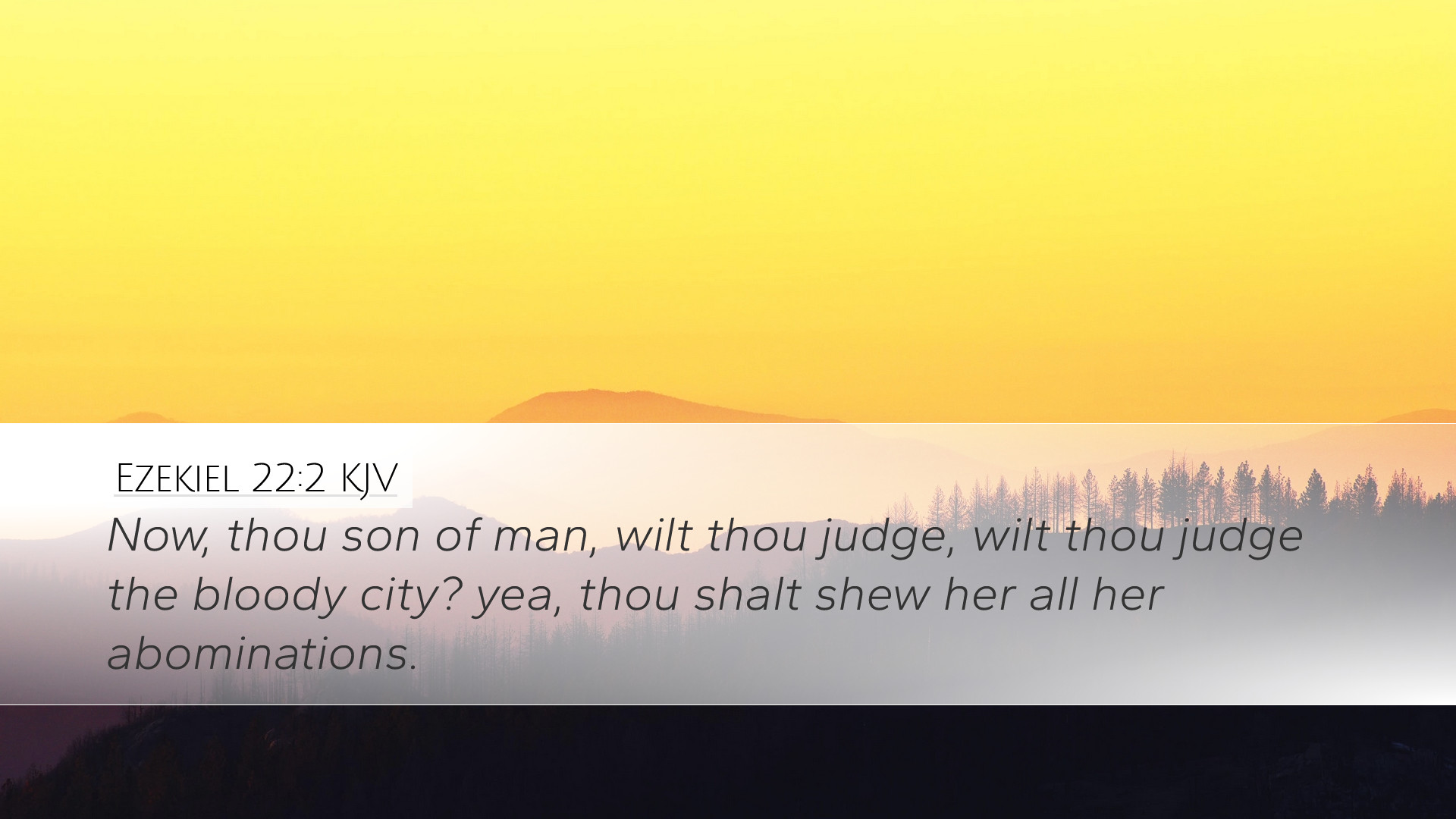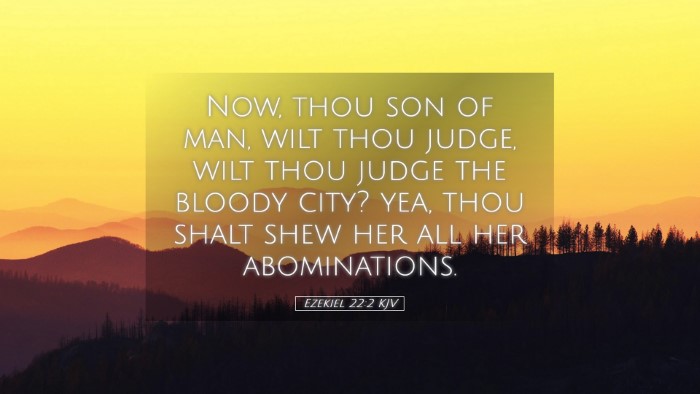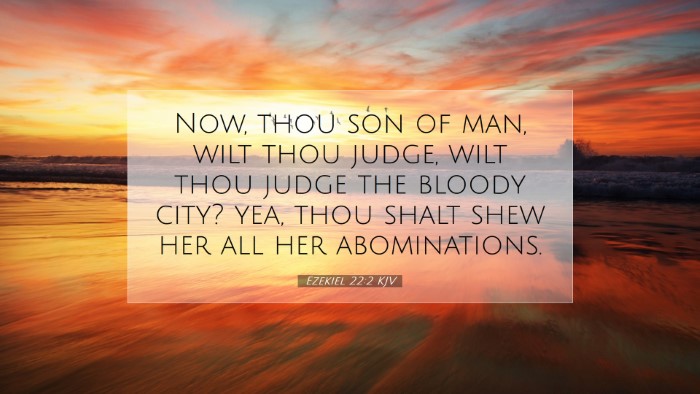Ezekiel 22:2 - Commentary and Insights
Bible Verse: "Now, son of man, will you judge, will you judge the bloody city? Then declare to her all her abominations." (Ezekiel 22:2, ESV)
Contextual Overview
This verse is situated within a larger passage where the prophet Ezekiel is called to pronounce judgment upon Jerusalem, often referred to metaphorically as a "bloody city." This designation highlights not only the moral decay rampant in society but also the bloodshed resulting from its injustice and idolatry.
The Call to Judgment
Matthew Henry's Commentary: Henry describes Ezekiel's role as God's messenger who is tasked to assess and pronounce judgment on the city. This call to judgment emphasizes the accountability of leaders and the necessity for divine justice in the face of rampant wrongdoing.
Albert Barnes' Notes: Barnes indicates that the term "bloody" signifies the bloodguiltiness of Jerusalem, which includes the shedding of innocent blood. This depiction serves as a backdrop for understanding the severity of the city's sins and the repercussions of its actions as seen through God’s perspective.
The Bloody City
Adam Clarke's Commentary: Clarke elaborates on the term "bloody city," indicating that the phrase conveys a comprehensive judgment against the societal structures that allow injustice and violence to perpetuate. He notes that the bloodshed may refer not only to murder but also to the spiritual decline that leads to moral and social chaos.
Understanding the Abominations
This portion of the verse directs Ezekiel to declare the abominations within Jerusalem. This call reveals several critical insights:
- Moral Decay: The abominations represent the ethical and spiritual failures of the people, highlighting a breach in their covenant relationship with God.
- Prophetic Role: The role of the prophet includes not only foretelling disaster but also revealing the root causes of divine displeasure, which in this case is tied to systemic sin.
- Community Responsibility: The verse implies a collective responsibility for the sins of the city, calling both leaders and laypersons to account.
The Purpose of Judgment
Matthew Henry's Analysis: He argues that God’s call to judgment serves as a means of arousing His people's consciousness to their sinful states. Judgment is not just punitive, but redemptive, leading the people to repentance.
Albert Barnes' Reflections: Barnes posits that the purpose of declaring these abominations is to prompt a realization among the people of their departure from God’s ways and encourage them to seek His mercy before it is too late.
Theological Implications
In exploring Ezekiel 22:2, several theological themes emerge:
- Divine Justice: God's call for judgment reflects His nature as a righteous judge who cannot overlook sin.
- Prophetic Integrity: The responsibility of the prophet to speak truthfully about the conditions of the society resonates through the ages, reminding modern readers of their call to confront sin in their communities.
- Hope for Restoration: While the passage speaks of judgment, it also embodies hope for change and transformation if the people would turn back to God.
Application for Today
The message of Ezekiel 22:2 is potent for contemporary Christians, theologians, and pastors. It serves as a reminder of the importance of confronting societal injustices and the moral decay that may arise from apathy.
- Call to Vigilance: Leaders in the faith community must be vigilant in addressing issues of justice, equity, and moral integrity within their congregations and societies.
- Prophetic Witness: All believers are called to be prophetic witnesses in their conduct and speech, advocating for truthfulness and accountability in all areas of life.
- Redemptive Hope: Amid judgment, there remains an invitation to repentance and reconciliation, emphasizing a loving God who desires to restore His people.
Conclusion
Ezekiel 22:2 encapsulates a profound call to moral and spiritual accountability. It highlights the role of the prophet as both judge and advocate, reminding us of the weighty responsibility to face the sins of our communities with integrity and hope for redemption. Reflection and action stemming from this prophetic vision can yield transformation, not just in individuals but in families, communities, and nations.


